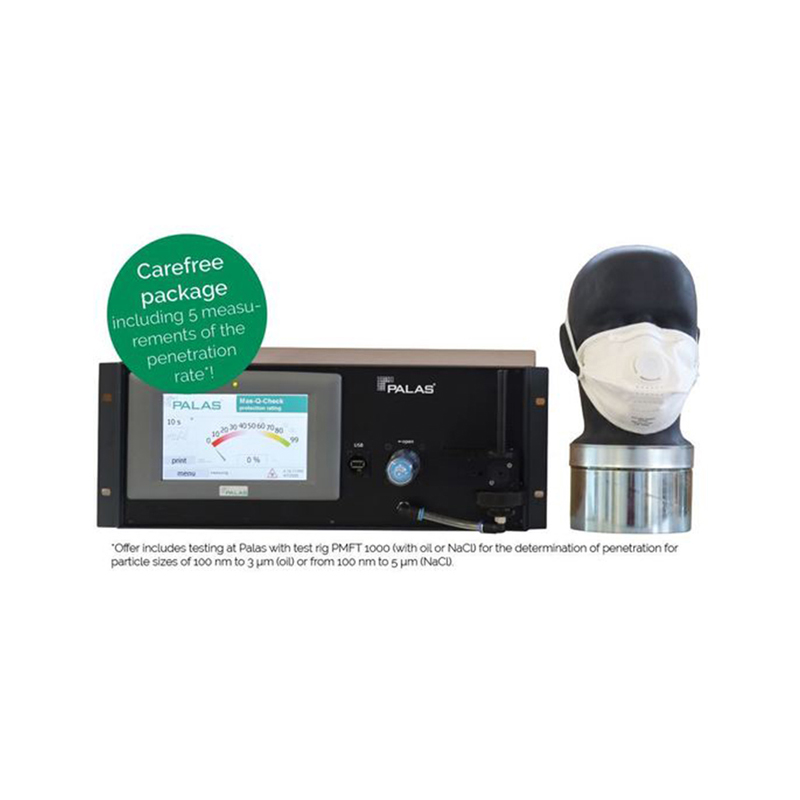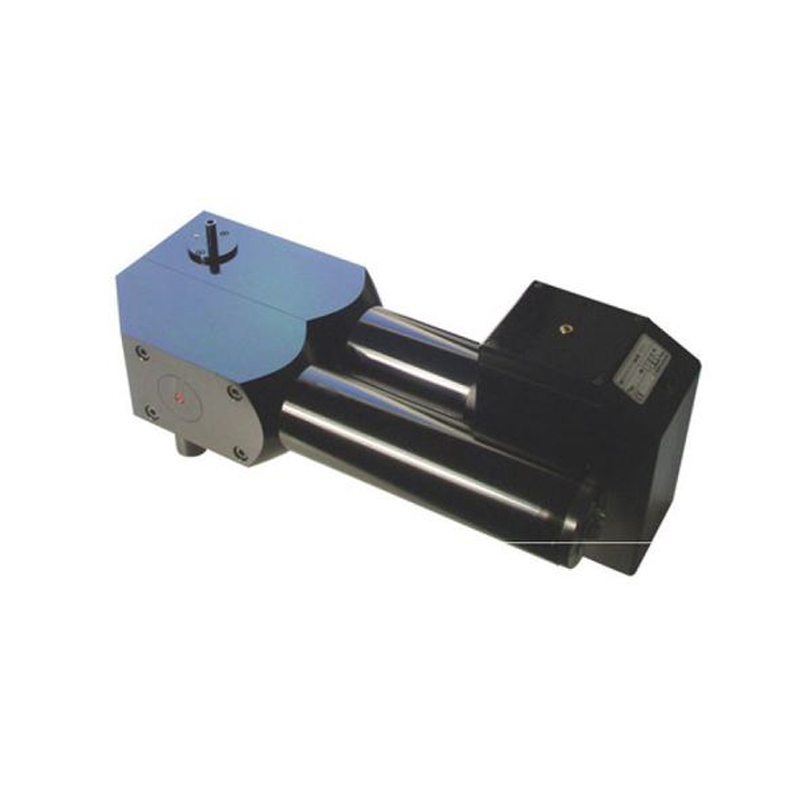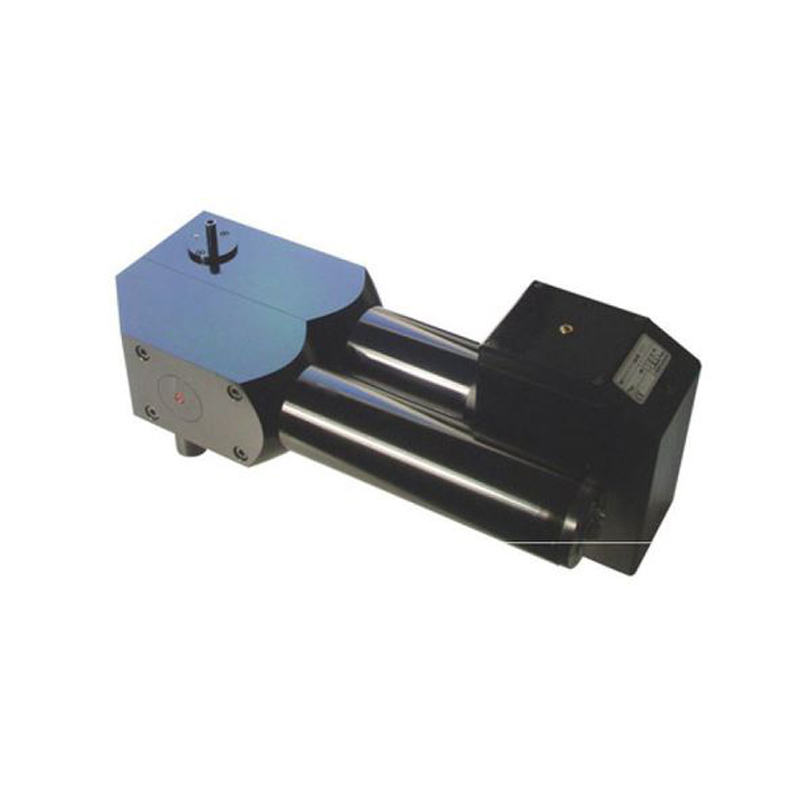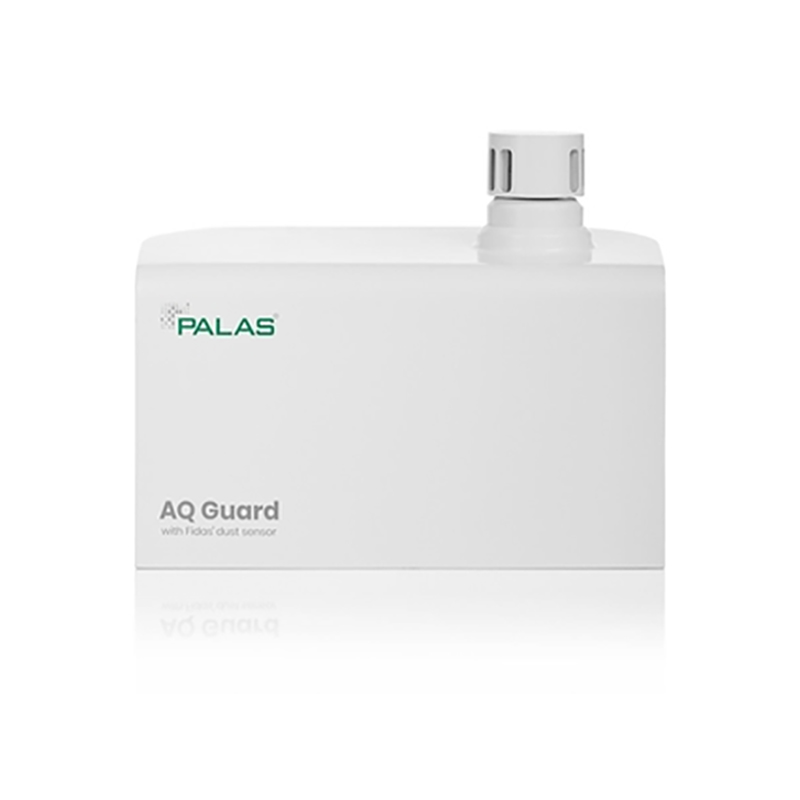Description
The Mas-Q-Check was developed by Palas to subject protective masks to a quick, simple and yet meaningful test before use. A particle counting measurement device is used, which is able to detect efficiencies in the size range of viruses and bacteria. The system can also be used for training purposes as it immediately shows the efficiency of protective masks.
Two versions are available:
• Mas-Q-Check Basic with a volume flow of 9.5 l/min
• Mas-Q-Check Professional with a volume flow of 95 l/min (pictured)
Functionality:
The mask is placed on the test head before use. Using a high-resolution aerosol spectrometer, the particle contamination (size and quantity) in the ambient air is measured. Afterwards the device switches automatically and determines the value of the particle contamination behind the protective mask. This can be repeated automatically several times. The ratio of the two measured values is used to determine the degree of protection of the protective mask. A simple display immediately shows whether the mask can be used.

Degree of protection:
The degree of protection provided by a respirator depends on the filtration effect of the mask material as well as the correct fit on the head. Leakage can occur (i.e. air passes the material and enters behind the mask unfiltered), which affects the protective effect.
By means of the test on the standard head with the Mas-Q-Check, both effects are simulated simultaneously and the real protective effect of the mask against particles in the outside air is measured.
The result shows the degree of protection in comparison to the FFP Class of the mask on the test head. Optional on display is the effiency for different particle sizes. SO the degree of protection may vary with regard to the particle size.
Quality of the measurement:
The Mas-Q-Check works in suction mode with a volume flow of either 9.5 l/min or 95 l/min, defined according to EN149 or EN143, which corresponds to the maximum human breath. The measurement of particle contamination in the room and after the breathing mask is carried out by means of a high-resolution aerosol spectrometer, which precisely measures particle sizes from 140 nm to 1 µm. Thus, the protective effect of viruses is also determined.
With the Mas-Q-Check, safe on-site testing of respiratory masks is therefore possible automatically within 1 minute.




